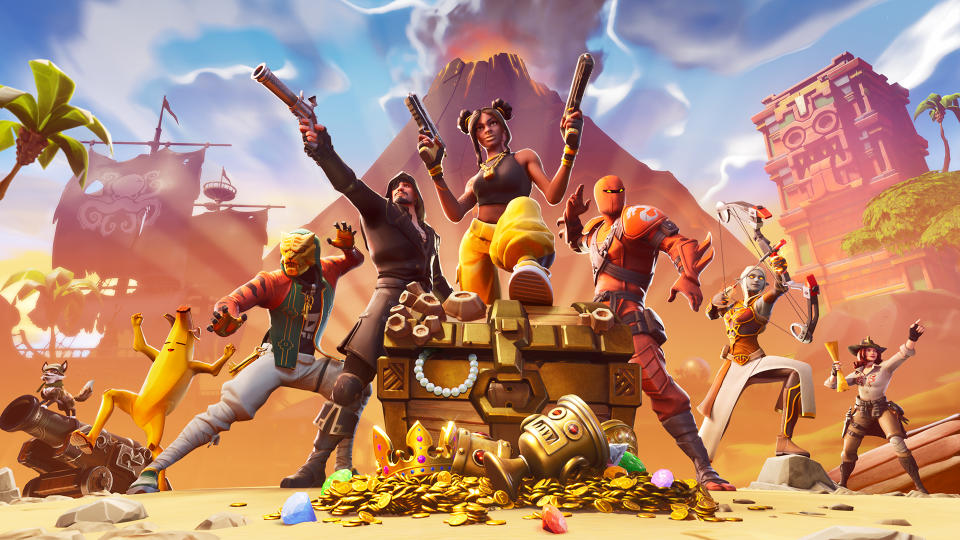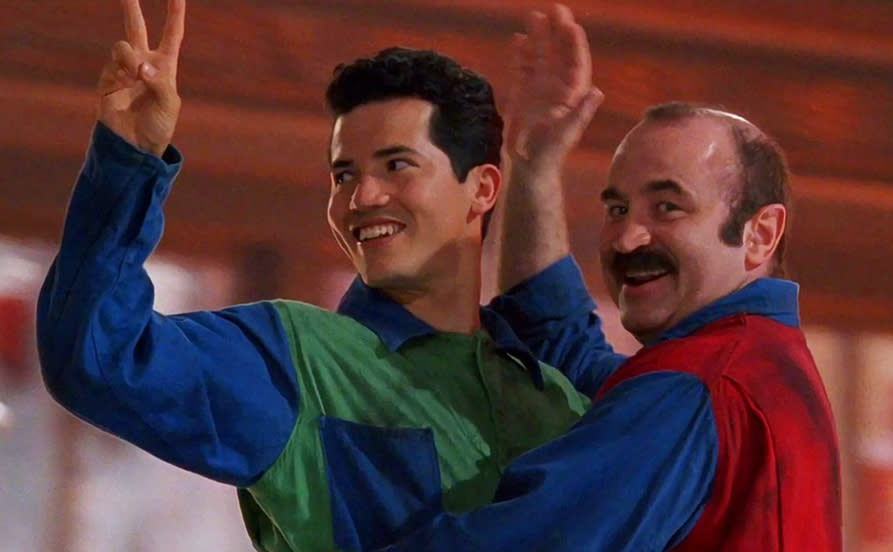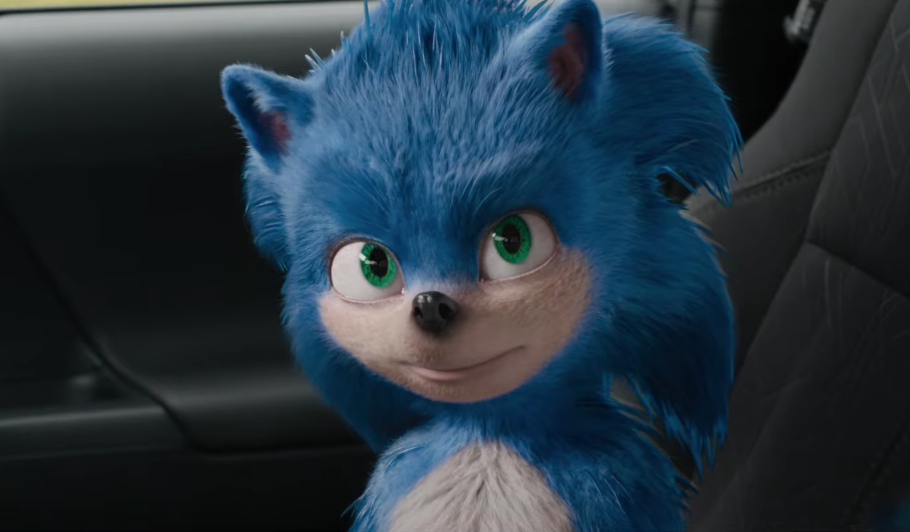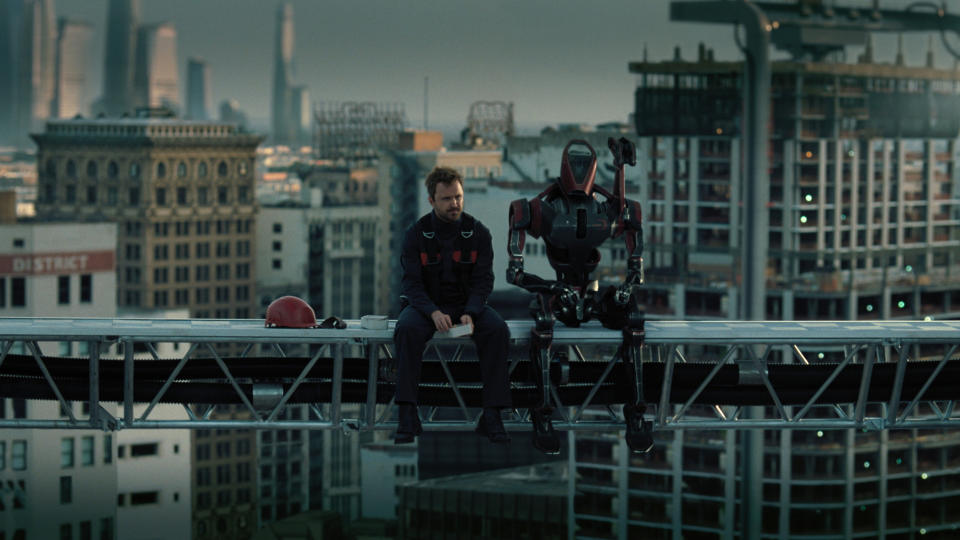How the Future of Entertainment Will Be Forged Between Hollywood and Video Games


IndieWire turns 25 this year. To mark the occasion, we’re running a series of essays about the future of everything we cover.
It was May 1993 when the “Super Mario Bros.” movie was first released to a nation of very confused gamers, and it’s safe to say that Hollywood and video games have experienced a somewhat tumultuous relationship ever since. Forget oil and water, we’re talking Sonic and Robotnik, Avalanche and Shinra, “Cyberpunk 2077” and anyone who paid $60 to play it. Logic suggests there’s money to be made from crossing the streams, but almost 30 years of ostensible slam-dunks have yielded little success in either direction. Without adjusting for inflation, Duncan Jones’ “Warcraft” remains the highest-grossing movie ever adapted from a video game, but even the studio recognized that the backlash failed to justify the cost of a sequel.
More from IndieWire
Tribeca to Bring Unreal Engine to Indie Filmmakers via Fall Program -- Exclusive
If Everything's a Little Bit Gay, What Happens to Queer Film and TV?
Yet for all of the friction between their respective industries, Hollywood and video games have never been on a more dramatic collision course, nor have their respective futures ever appeared to be so intertwined. As film continues to fight for relevance and real estate, television networks and streaming platforms seem positioned to become the most viable bridge between these very different forms. However, gaming is moving closer to the center of mass culture every day (reaching a total revenue of $167.9 billion during the pandemic-stricken 2020) as people the world over migrate to digital spaces for social and recreational purposes alike.
But a simple rise-and-fall narrative ignores how these disparate media have always informed each other, and will continue to do so for the foreseeable future; at the same time as Hollywood is straining for new levels of active content interaction, games are growing increasingly cinematic, and companies like Twitch are making fortunes by investing in passive engagement. Despite their chaotic relationship, the evolving relationship between these two forms will prove instructive to the shape of the entire media landscape over the next 25 years.
In an effort to map the current intersection between Hollywood and gaming as it exists today — and to imagine how that border might blur and be redrawn tomorrow — IndieWire spoke to a range of influencers grappling with the relationship between Hollywood and gaming to help us understand what it will look like down the road.
The Fundamental Flaw of Turning Games Into Movies
The issues with Hollywood’s past adaptations of video games are myriad, but the biggest problem that has plagued such titles since the days of “Super Mario Bros.” is that the source material hasn’t offered narratives strong enough to survive the loss of interactivity, according to Polygon editor-in-chief Chris Plante.
“Video game movies have been bad because they were based on things that literally didn’t have stories,” Plante said. “A plumber with no personality moves right — that’s the story of the first three ‘Super Mario Bros.’ games. It means nothing. I guess you could say ‘Well, actually it’s fundamentally about the Aristotelian tripartite structure because he jumps up, hits something, and then comes down,’ but you have to squint pretty hard to see anything there.”
As the technology evolved in the 21st century and the days of sprites and FMV gave way to the playable spectacle of “Resident Evil” and the John Carpenter-inspired “Metal Gear Solid,” video games were suddenly imbued with more filmic tendencies. Bloomberg reporter Jason Schreier, whose book “Press Reset” explores the game industry’s behind-the-scenes growing pains as it boomed over the last 10 years, told IndieWire that Hollywood’s recent efforts to hitch a ride on that bandwagon display a drastic reversal of how things used to be: “It used to seem like video games just wanted to be films so badly. You saw buzzwords like ‘cinematic’ get thrown around as games tried to recreate the giant camera sweeps and explosive setpieces that you’d get from a Hollywood blockbuster.”
Things are beginning to change. From “Sonic the Hedgehog 2” to Netflix’s “Assassin’s Creed” series and long-gestating projects like the “Minecraft” and “Metal Gear Solid” movies, there are far more film and television adaptations of video games in various stages of development today than at any other time in history. Hollywood’s past adaptations of video games were rarely headed by highly-regarded directors and were often only marketed as mindless, pandering action flicks; today, A-list directors and talent have signed on to upcoming film and television adaptations of video games, many of which are based on titles that boast rich narratives and humor, such as “Disco Elysium” and “Fallout.”
In turn, Hollywood stars and celebrated writers have lent their talents to video games with increasing frequency in recent years: Guillermo del Toro, Mads Mikkelsen, Margaret Qualley, and Norman Reedus starred in 2019’s “Death Stranding,” while “Game of Thrones” scribe George R.R. Martin created much of the mythology for “Elden Ring,” an upcoming game from “Dark Souls” developer FromSoftware.
Part of the shift is likely due to a better understanding in Hollywood about the narrative potential of video games, according to Amy Hennig, president of Skydance Media’s New Media Division and the creative director and writer for the first three “Uncharted” games.
“This is no longer a nascent medium. You look at some of the work that’s coming out of video game studios and it is absolutely on par — from a narrative, aesthetic, and cinematic level — as the TV we’re watching,” Hennig said. “There are a lot of young filmmakers and showrunners and people in the linear entertainment space who are gamers now.”
Such optimism is not universal. Despite the proliferation of video game adaptations, Hollywood creators and gaming experts alike share an uneasy feeling that such projects are only being pursued as a part of the much broader rush for recognizable content.
Emmy-winning “Chernobyl” creator Craig Mazin, now in the midst of turning Naughty Dog’s novelistic PlayStation masterpiece “The Last of Us” into a would-be prestige HBO series, argued that interactivity has long been the greatest obstacle facing video game adaptations.
“The notion of being a playable character has often meant there’s no actual character there — that the character is something of a cipher,” Mazin told IndieWire via Zoom from the show’s Western Canadian set. “Cut-scenes would say ‘stop playing for a second and we’ll show you the bare minimum of what you need for plot,’ and so it was a huge shift when the wall between play and cut-scene started to crumble with games like ‘Bioshock.'”
Of course, even a rich narrative experience like 2007’s “Bioshock” offers its own impediments when it comes to adaptation (e.g. a silent protagonist and the player’s attendant complicity in his actions). For Mazin, who has also written a draft for the upcoming star-studded adaptation of “Borderlands” that’s set to hit theaters next year, more involved video game stories have only underscored the main issue: “Movies are not a particularly good medium for video game stories.” Whether that matters to Hollywood executives hungry for adaptations of well-known IPs is dubious, according to Mazin.
“They don’t get it,” Mazin said regarding whether Hollywood’s executives have kept pace with their audience. “They don’t know because they don’t play. And if their kids play, they get it even less because then it’s like ‘My kid loves that game.’ That’s even worse. You have to love games to understand what makes them tick.”
Netflix Sees the Future, But It Needs Work
Smartly adapting a video game into a film or television show is no small feat, but the potential economic boons for doing so could be massive. Hollywood companies, especially those that operate streaming services and manage high-profile intellectual properties, are constantly jostling for the attention of consumers and there is ample room in the market for video games to play a role in drawing in new fans while retaining old ones via interactive narrative experiences, according to Geoff Keighley, the producer and host of the annual The Game Awards show.
“Back in the day of ‘The Matrix’ movies, the Wachowskis did this thing where they had the movie and a game that told the side stories of some of the characters,” Keighley said. “It was ahead of its time in that they shot sequences for the game at the same time they shot the film. You could learn more about Jada Pinkett Smith’s character by playing the video game and seeing additional scenes that intersected with the movie. I think we’re going to see more of these living narratives where everything is kind of conceived of all together. Disney+ is doing a little of that right now, where you have certain Marvel characters like Loki getting his own series that fits into the overarching ‘Avengers’ narrative. The next phase is the video game component of that; you’ll have the movie, streaming show, and the video game, and it will all be a large, shared narrative.”
That future isn’t far off: Netflix turned heads when the company announced its intent in its latest earnings report to include video games as a perk of its customers’ subscriptions in the future. Continued advances in streaming could significantly lower the financial barrier to entry for consumers interested in video games, while Hollywood streamers could tap into new audiences; subscribe to a service and get access to a library of games that you can easily stream on your television instead of needing to buy an expensive gaming console or computer. Subscription services such Google Stadia, Xbox Cloud Gaming, GeForce Now, and Amazon Luna are already exploring that market and it’s likely that popular film and television-focused streamers will follow suit in the coming years.
However, Hollywood streamers will need to do more than simply include video games as an additional perk for their subscribers. Though there have been an endless number of video games based on films and television shows over the years, few of them have received critical praise or commercial success (“Star Wars” games being a notable exception), and almost none of them have directly furthered the storylines of their source material. Hennig noted that executives behind Hollywood streamers interested in gaming would need to play to their platforms’ strengths — namely, crafting narrative-driven content — instead of simply adding video games to their platforms.
“People assume that gaming has to be about mastery, difficulty, or ‘beating’ an experience,” Hennig said. “To be successful, streamers would have to not just dip a toe in. They have to go all-in and understand it’s not about intermittent interaction. … It can be about embodying the hero or a protagonist in a well-crafted narrative experience.”
The Unreal Engine Will Change Everything
The continued blurring of the lines between Hollywood and the gaming industry could be a boon for filmmakers and showrunners. Television shows such as “The Mandalorian” and “Westworld” have been partially created in Unreal Engine, which has been used to create a myriad of the video game industry’s most notable titles. As video game engines continue to become more advanced — and as major Hollywood films and shows continue to lean more heavily on CGI — the differences in how titles in each medium are created will continue to become hazier.
“I think we’re going to see more and more of an intersection happening,” Keighley said, citing both “The Mandalorian” and the Video Music Awards as recent projects that used the Unreal Engine to power their sets. “We’re going to start to see is that the assets being used for movies, such as special effects, are going to be able to be brought right into video games.”
It’s not clear yet how that technology might benefit smaller creators, though people like Tribeca Games VP Casey Baltes are doing everything in their power to create a future that accommodates people whose imaginations exceed their budgets. “I do think it will end up being the way that a lot of films will be made,” Baltes said. “We’re not necessarily thinking that they’ll be big budget films, but I think Unreal Engine can be used in a multitude of ways that are readily accessible.”
What if the Term ‘Video Game Movie’ Didn’t Inspire Dread?
As for the long-term viability of film and television adaptations of video games, Hollywood will have to fundamentally alter its perception of the medium as a whole. Mazin is reluctant to get ahead of himself, but he noted that “The Last of Us” might represent such a paradigm shift: “I don’t think the folks at HBO were necessarily plugged into the game world, but it would only take them 20 minutes on Google to realize that ‘The Last of Us’ is the ‘Lawrence of Arabia’ of video game narratives. Just by dint of the fact that they said ‘yes’ [to a 10-episode first season], you get a feeling that this is going to be different.”
The fact that Cannes-worthy auteurs like Kantemir Balagov (“Beanpole”), Jasmila Žbanić (“Quo vadis, Aida”) and Ali Abbasi (“Border”) have been hired to direct the first episodes on the strength of the scripts alone is another strong indication along those lines.
Baltes, whose career-long efforts to explore the intersectionality between cinema and gaming recently made Tribeca the first major film festival to include an official selection of video games, agreed that the mediums are potentially on the precipice of a different top-down mindset.
“The dialogue between industries is just starting now,” Baltes said. “It’s taken so long because of a misperception of what video games are and could be. They’re lumped into one big umbrella in terms of who they’re intended for. The most important thing for the film industry to realize is that video gaming is a giant ecosystem, just like films are.”
What video game consumers demand from adaptations — and what those adaptations demand of their authors — is unique to the medium, and then again to each property: “Adapting games isn’t more or less difficult than adapting other things, it’s just completely different,” Mazin said.
Mazin added that any video game adaptation will live or die based on how it accommodates the lack of interactivity: “The first thing you need to do is not worry about the action — you can’t worry about reproducing the unreproducible enjoyment of killing monsters, moving a character from A to B, or controlling them as they spend 30 minutes exploring a garage,” he said. “It would be folly to try and reproduce that as a passive experience.”
Game Studios Will Take Charge of Their Own Adaptations
Mazin fears that video games so vividly supply their own set of Ikea-like instructions that most adaptations will never enjoy the kind of creative flexibility that he and Naughty Dog co-president Neil Druckmann, who wrote “The Last of Us” game, have gotten from HBO. But what if Hollywood doesn’t have a hand in those decisions? What if video game studios — flush with cash, and eager for ways to create 360-degree interest in their content — develop their own adaptations in-house, and at a budget level that implicitly reflects the freedom to play around?
This past summer, a fun, supernaturally tinged murder-mystery called “Werewolves Within” premiered at the Tribeca Festival before receiving a low-key pandemic release in theaters and then moving into its forever home on VOD. What many — perhaps even most — of the people who watched and enjoyed it may not have known is that the movie is based on a Mafia-like multiplayer VR game of the same name in which players try to figure out who among them is a werewolf. The game has such a small fanbase that Josh Ruben had to play it with the developers themselves after Ubisoft, which published the game, approached him about directing the film adaptation, as there weren’t enough other people in the game’s virtual lobby. Mishna Wolff wrote the script under the auspices of the Ubisoft Women’s Film & Television Fellowship, and the game developer footed the entire $6 million budget required to bring it to the screen.
“Six million dollars is like couch change to Ubisoft, but I have faith in the future of video game movies if studios are going to be filmmaker-forward in the way that Marvel is only touting itself as being. I said, ‘What do I owe you guys?'” Ruben said, recalling his conversation with Ubisoft. “And they were like, ‘You owe us a good movie.’”
That’s exactly what they got — a good movie that was true to the undercutting, paranoid, irreverent spirit of the game upon which it was based. Something like “Werewolves Within” feels like a trial run for what game studios might hope to do on a much larger scale going forward as they look for opportunities to extend the lifespans of their marquee titles.
Don’t Forget About Fortnite

Epic Games
The straight game-to-movie path doesn’t ensure sustained profitability, which both Hollywood and game studios are trying to sort out. “The big buzz-phrase in gaming over the last few years has been ‘games as a service,’” Schreier said, “which is the idea that instead of just releasing a game and selling a bunch of copies before moving onto the next project, you continually update that same game in some form or another and it just lives on as a platform.”
Ubisoft typifies how companies are eager to complete the circle on their own terms. Not only is the next installment of their mega-budget “Assassin’s Creed” franchise — codenamed “Assassin’s Creed Infinity” — going to be an online platform that will expand to new locations over a number of years, it will also coincide with Ubisoft Film & Television’s “Assassin’s Creed” forthcoming Netflix series.
Schreier cited “Fortnite,” which is famous for its myriad tie-ins to major Hollywood IPs, as the Platonic example of the “never-ending game” phenomenon, but the strategy is also inextricably linked to the Marvel Cinematic Universe. This homogeneous “games as a service” approach is all too familiar to anyone who sat through the credits of “Black Widow” only to see a glorified commercial for the upcoming “Hawkeye” series on Disney+, but passing the baton from a movie to a TV show and back again is only the tip of the transmedia iceberg that will be revealed as Hollywood and the gaming industry continue to melt into each other.
“There’s a space between films, TV, and interactive forms of entertainment that is undiscovered and could birth a new medium,” Baltes said. “That space is not talked about, and will allow for some of the gaps in communication to be mended.”
Sign up for Indiewire's Newsletter. For the latest news, follow us on Facebook, Twitter, and Instagram.





